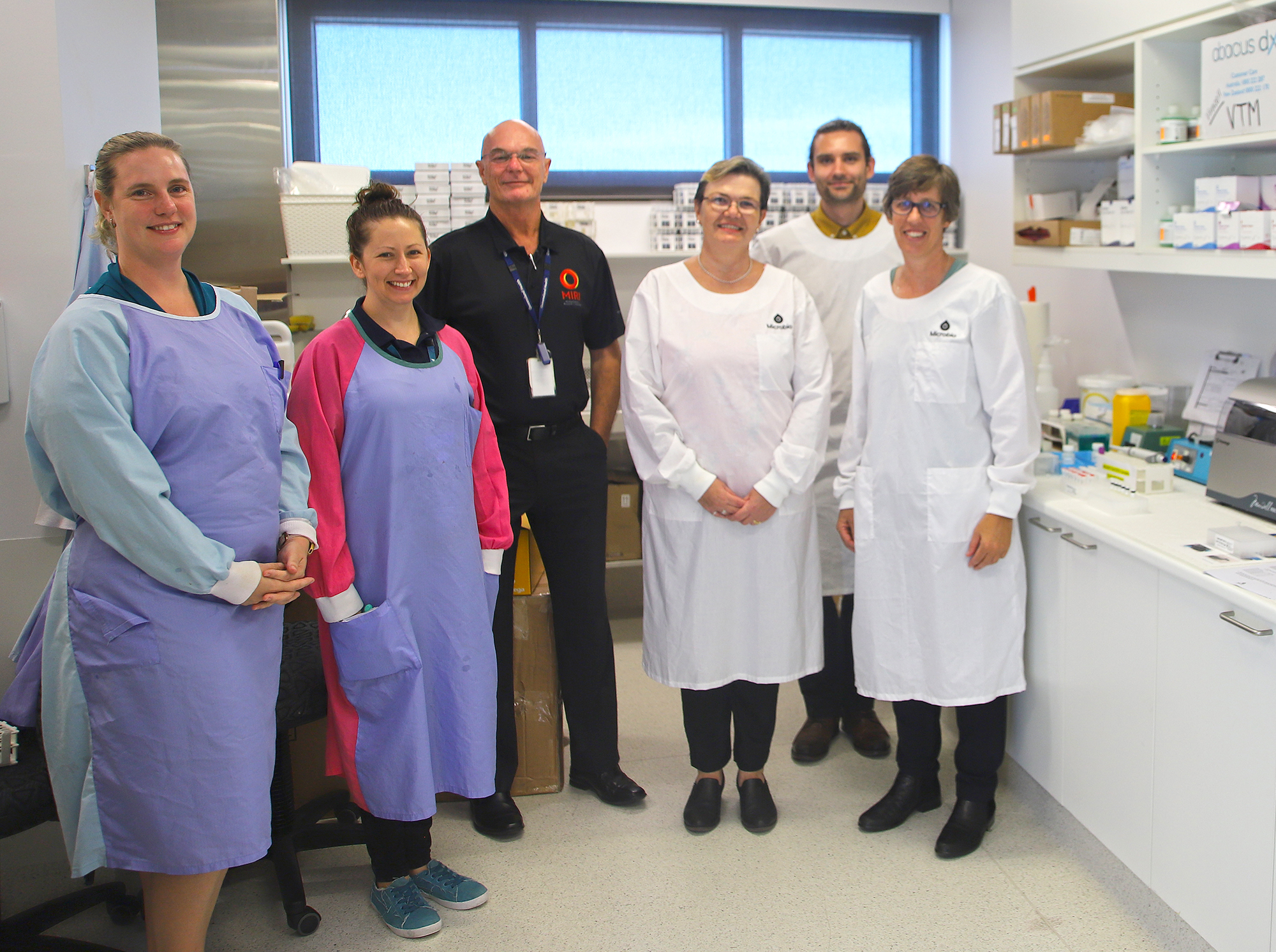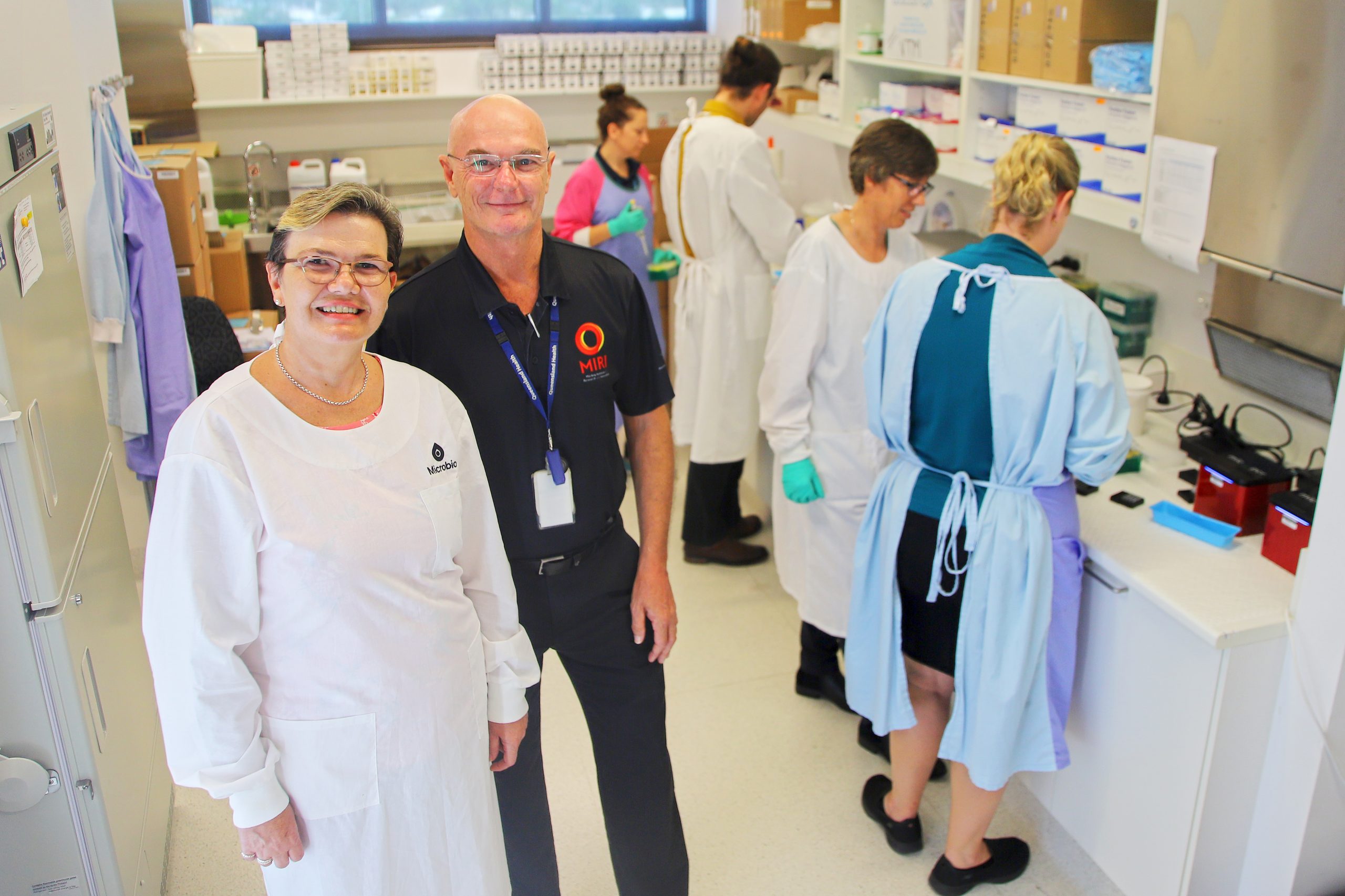World-first research to rapidly diagnose sepsis-causing blood stream infections was launched at Mackay Base Hospital’s Pathology Queensland laboratory today.
Microbio’s InfectID-BSI (blood stream infection) assay uses PCR testing to find the DNA of bacteria and yeast to allow clinicians to prescribe specific antimicrobials.
Currently blood samples are cultured for 12 hours or longer to see what bacteria or yeast grows.
Researcher Professor Flavia Huygens said it was hoped clinical trials would show her assay produced a result in three hours from collection of the blood sample.
Mackay Institute of Research and Innovation Professor David Farlow said the technology had the potential to revolutionise the detection of sepsis globally.
“Sepsis is life threatening, it’s hugely debilitating and people can literally die within hours. The decline happens very quickly.
“I was a clinician on the floor for 25 years in a rural hospital and at Mackay Base and any experienced clinician will have witnessed patients die in front of them in hours.
“The global evidence is the mortality rate of septic shock is around 30% so one in three people will die while we wait to find out what is making them sick.
“The quicker you know what is causing the infection the quicker the best and most appropriate antibiotics can be administered to the patient,” he sid.
The Microbio team has launched the two-week user acceptance trial, teaching local staff how to run the test and hope that 50 samples will be analysed.

Dr Huygens said extracting the DNA directly from blood would save critical considerable time.
“Each microorganism has a unique DNA signature that can be detected in real time using PCR testing.
“Currently we rely on growing the bacteria or yeast in the patient’s own blood. This takes about 12 hours before we can even start to identify the organism that is making the person sick.
Mackay Base Hospital is the first hospital in Australia to conduct the user acceptance testing which will be followed up by a national clinical trial later this year.
“This user acceptance phase is so important because it puts our test to use in a real laboratory environment and will provide feedback from staff about usability and will allow us to make any improvements needed.
“It’s not just about asking ‘does the test work?’, the test has to be user friendly and work within the flow of a laboratory,” she said.
Dr David Farlow said it was exciting for a regional hospital to be associated with the discovery component of research.
“We do lots of clinical trials to support regional people to gain access to some of the latest drug treatments but this is the first occasion we are associated with the research component.
“We are looking to be involved in the clinical trial, which is a key step that the Microbio test must go through before being approved for use in the market.”



